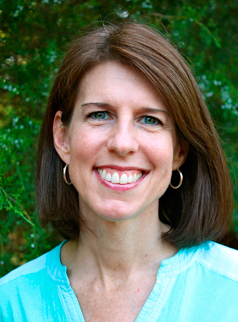Empathy and the Bright Side
Have you ever shared something painful or frustrating with a friend or loved one to be met with a response of, “look on the bright side…” or “at least…(something not as bad)”? Does that advice leave you feeling better or worse?
I recall a friend stating in a Facebook post that she felt sad and angry that her mother was not alive to celebrate her birthday. She received many empathic comments, but she also received comments advising her to “focus on the good memories” and that her “mother wouldn’t want her to feel that way”. I knew that the people commenting cared for her and were genuinely trying to help, but I couldn’t help but wonder if my friend felt shamed for her natural and appropriate feelings.
It made me wonder further about the people leaving the comments. I am 100% certain that their intent was not to shame but rather to help her feel better. While I certainly prefer to receive empathy when I share painful things, and I assume that my clients do as well, I wondered if there is a certain group of people who feel better when they are immediately advised of the bright side of their situation in reaction to their pain.
I decided to launch a very “scientific” research study by asking the following question on my personal Facebook page: “When you share with someone close to you something that is painful or frustrating, do you like it when they respond with pointing out the ‘bright side’?”
Most people who commented reported that either listening, empathy, or validation of feelings (or a combination of these) is their preference. Two people stated that it depended on the situation; sometimes they wanted someone to listen and sometimes they wanted a positive perspective. Two other commenters reported that they were open to the “bright side” but only after adequate validation and consolation.
The response I did not receive was an unqualified, “Yes, the ‘bright side’ perspective makes me feel better.” How fascinating, then, that the “bright side” response is so often the immediate reaction to people’s pain. How to explain this discrepancy between what people offer and what people need?
This led me to think about the experience of the person with whom the pain is being shared. On the cynical side, perhaps the person has learned (consciously or subconsciously) that this response is often successful in extinguishing further sharing of pain. They may simply not want to engage in this type of conversation. The “sharer” will then often change the topic, not because they feel better, but because they realize they aren’t being understood.
Another reason may be that the person holds a belief that positive thinking is the best medicine and is wanting to provide a curative dose. According to my Facebook responders, this is not received as the panacea it is intended to be. It is certainly easier to find the positive in someone else’s situation than our own, isn’t it?
It is possible that the problem being shared is perceived to be easier than issues the person is dealing with him or herself. For someone experiencing difficulty themselves, they may simply not have the emotional resources to provide the empathy that the loved one needs at the time.
Maybe the person feels a great deal of empathy but has difficulty tolerating emotions, his or her own and others’. Being empathic requires you to feel others’ emotions yourself. Dr. Brené Brown explains the difference between empathy and sympathy in this brilliantly illustrated RSA Short – “The Power of Empathy”: https://www.youtube.com/watch?v=1Evwgu369Jw
Pain and frustration are universal experiences that can facilitate powerful connection between people. Sharing these feelings allows others the privilege of knowing a person at a deeper, more intimate level. Genuine, empathic interaction allows people to feel heard, understood, and validated. It is from that place of security that the healing begins.
If you are having difficulty feeling understood and connected with your loved ones, please contact me at 706-425-8900 ext 709 or via email at [email protected].


